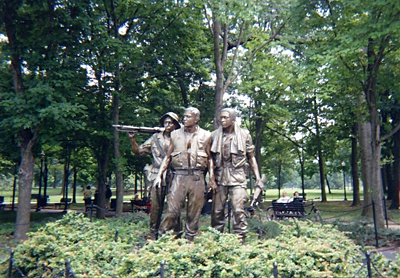All Nonfiction
- Bullying
- Books
- Academic
- Author Interviews
- Celebrity interviews
- College Articles
- College Essays
- Educator of the Year
- Heroes
- Interviews
- Memoir
- Personal Experience
- Sports
- Travel & Culture
All Opinions
- Bullying
- Current Events / Politics
- Discrimination
- Drugs / Alcohol / Smoking
- Entertainment / Celebrities
- Environment
- Love / Relationships
- Movies / Music / TV
- Pop Culture / Trends
- School / College
- Social Issues / Civics
- Spirituality / Religion
- Sports / Hobbies
All Hot Topics
- Bullying
- Community Service
- Environment
- Health
- Letters to the Editor
- Pride & Prejudice
- What Matters
- Back
Summer Guide
- Program Links
- Program Reviews
- Back
College Guide
- College Links
- College Reviews
- College Essays
- College Articles
- Back
The Man Who Was Almost A Man Critique
“Ahead the long rails were glinting in the moonlight, stretching away, away to somewhere, somewhere where he could be a man” (Wright). The Man Who Was Almost a Man by Richard Wright is about a boy who tries to prove to his family and peers that he can be a man. Dave, 17, is a small boy, but he feels he can take on the other, bigger workers if he had a gun. This story is of him getting the gun and learning how to deal with the new found responsibility of being a “man”. Richard Wright was born in 1908 on a farm in Mississippi. His father left when he was a child and he had to care for his sickly mother. Later in his life, he went on to write, but was met with many obstacles due to race. Using racial/cultural criticism, the reader can analyze Richard Wright’s The Man Who Was Almost a Man through dialogue, the symbol of the gun, and black-white relationships.
“N*****, is yuh gone plumb crazy?” (Wright). The fact that the term “n*****” is used commonly, especially by Dave’s own mother calling him a n*****, shows that at the time, “n*****” is not seen as a derogatory term. It’s just a term that was carried over from the slave days. “‘Come on, tell and the truth,’ said Hawkins” (Wright). Hawkins is the white plantation owner and his dialogue shows that he is better educated than all the blacks that appear in the story. His speech is well defined, although it does have a southern hint to it.
“One of these days he was going to get a gun and practice shooting, then they couldn’t talk to him as though he were a little boy” (Wright). Dave feels that a gun will make him a man. He feels his masculinity is threatened by the other workers, probably because he is ridiculed by them. He wants to prove to them that he is a man and Dave feels that a gun will be the best thing. “He had not come straight home with it as his mother had asked; instead he had stayed out in the fields, holding the weapon in his hands, aiming it now and then at some imaginary foe” (Wright). Here, Dave proves that he is still a child. He directly disobeyed his mother’s orders after getting what he wanted. His mother should not have let him get the gun, but Dave is beyond caring. He has it and he can feel the power it holds. He is fascinated by it and does not want to give it up.
“He felt very confident until he saw fat Joe walk in through the rear door, then his courage began to ooze” (Wright). Dave is intimidated by Joe. He wants to get the catalogue to look at the guns, but Joe is a fat, greasy, white man who Dave is some-what frightened of. There’s no indication to any reason why Dave should be intimidated, so it can be inferred that Dave is apprehensive around most or all whites because of his position in society as a black plantation worker. “Could kill a man with a gun like this. Kill anybody, black or white. And if he were holding his gun in his hand, nobody could run over him; they would have to respect him” (Wright). The sense of power Dave gets from the gun is what he wanted. He wanted to be able to stand up to the other black workers, but also to the white employers.
Based off of dialogue, symbolism of the gun, and black-white relationships, Richard Wright’s The Man Who Was Almost a Man can be analyzed using racial and cultural criticism. People can learn from this story how to deal with situations properly. One does not need a weapon to prove oneself. In a perfect world, one would not have to prove oneself in the first place. Although, this is not a perfect world, but there are better ways to show your worth then owning a gun. The significance of this story is that at the turn of the century, a young, black boy had to turn to a gun to prove he’s a man instead of society accepting him as a man.

Similar Articles
JOIN THE DISCUSSION
This article has 0 comments.
